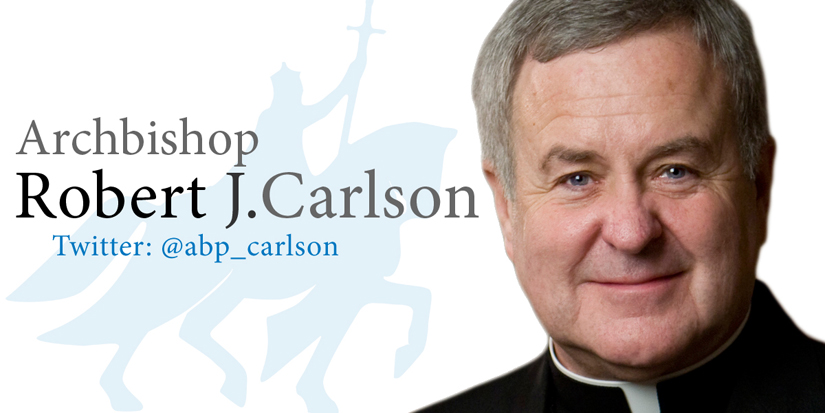BEFORE THE CROSS | Our deepest loyalty should be to the Gospel
When our political affiliations conflict with Gospel values, it’s up to us to find creative solutions

Where’s your citizenship?
For most of us, it’s in the United States. And thankfully so! Sure, our country is imperfect, but we receive abundant blessings by being its citizens.
Still, we hear a number of things from the readings this week to suggest that something deeper should be the case as well.
For example, we hear a series of readings from the prophet Amos. He was a shepherd in the Southern Kingdom of Judah. He was sent by God to preach to the Northern Kingdom of Israel in a time of great material prosperity, but equally great moral decay.
Amos was not welcomed with open arms! But he made something clear: His deepest allegiance wasn’t to his occupation — he had left that behind. It wasn’t to his own land — he had left that behind. It wasn’t to any human approval — he was rejected by the North, but preached anyway. His deepest allegiance was to the word of God. The other things were truly part of him: he was a shepherd, he was from Judah, he wanted people to accept his message. But his allegiance to the word of God was deeper than any of those, and gave him a greater freedom than any of them.
We also celebrate Sts. Peter and Paul this week (June 29). Peter was a member of the Jewish people. Paul was not only a member of the Jewish people but also a Roman citizen. For each of them, however, as for Amos, there was a deeper truth and a deeper allegiance. The deeper truth was their relationship with Jesus Christ. Their allegiance to Him gave them a greater dignity and a deeper freedom than anything else.
As we celebrate our country, and look to the upcoming elections, Amos, Peter and Paul offer us a challenge: Our deepest loyalty should not be to any political party but to the Gospel of Jesus Christ. Of course we can also belong to and advocate for political parties. Amos didn’t stop being from Judah; Peter didn’t stop belonging to the Jewish people; Paul didn’t stop being a Roman citizen. We don’t have to stop belonging to political parties. But if there’s a conflict between the Gospel and our political party our deepest loyalties need to become clear.
Let me suggest that if and when there’s a conflict we have three options: 1) Leave the party. 2) Stay, and push for change within the party. 3) Create an alternative that’s more acceptable.
Can change really happen? I think it can. Many years ago the state of catechesis in the Church was dismal. But a group of people who grew up under those circumstances decided to make a difference. They weren’t content just to complain about the problem. They dug deep and challenged the status quo with creative and alternative solutions. Their efforts created a new landscape for catechesis: Christopher West and the Theology of the Body Institute; Jeff Cavins and the Great Adventure Bible Timeline; Curtis Martin and the Fellowship of Catholic University Students; Tim Gray and the Augustine Institute with its offshoot, formed.org; Matthew Pinto and Ascension Press. There are many others.
The point is, there was a need for new wine and new wineskins, and a whole generation of catechetical leaders rose up to fill the need. There’s no reason the same thing couldn’t happen to the political status quo.
So I want to issue two calls. First, to the Young Church: If you’re dissatisfied with the political options available to you, exercise your determination and creativity! Create new wineskins. Second, to the Mature Church: I ask you to pray for this renewal. Lend it your encouragement, your wisdom, and your patience.
As we celebrate our country — and rightly so! — let’s think about how to bring it the new and deeper life we have in Christ.
Where’s your citizenship? For most of us, it’s in the United States. And thankfully so! Sure, our country is imperfect, but we receive abundant blessings by being its citizens. Still, … BEFORE THE CROSS | Our deepest loyalty should be to the Gospel
Subscribe to Read All St. Louis Review Stories
All readers receive 5 stories to read free per month. After that, readers will need to be logged in.
If you are currently receive the St. Louis Review at your home or office, please send your name and address (and subscriber id if you know it) to subscriptions@stlouisreview.com to get your login information.
If you are not currently a subscriber to the St. Louis Review, please contact subscriptions@stlouisreview.com for information on how to subscribe.



